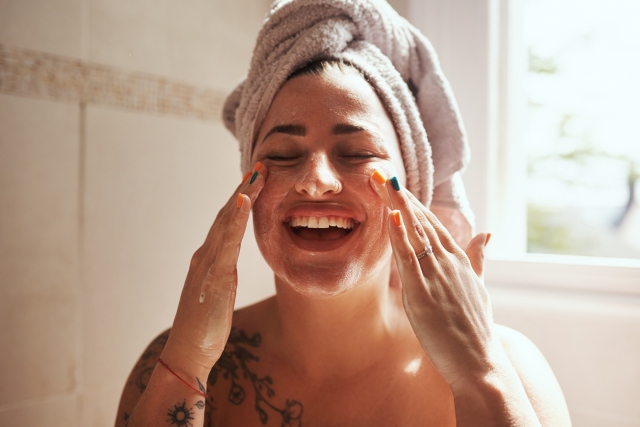Facial skincare makes us happy, science has confirmed

We all know that slathering on a hydrating skin serum, or administering a relaxing facial massage are often causes for contentment. Yet, little is understood on why this is the case.
A recent study published in the International Journal of Cosmetic Science revealed that facial skincare can elicit positive emotions.
The study was funded by French skincare brand, Biologique Recherche.
Results of the study concluded “that facial skincare has both physiological and psychological benefits which are two cardinal components of hedonic well-being.”
The study
Data were collected from 63 healthy women aged between 25 and 47 years. Participants were separated into two groups and assessed within the same environment.
In the first group, participants received the same restructuring and smoothing facial skincare by a trained aesthetician. Treatment was performed for one hour and incorporated facial massage techniques.
Products used during treatment were free of synthetic fragrance, and included an emulsion, serum and powder, tissue mask, cream, and cosmetic steel spoon.
The second group rested for one hour.
Both objective and subjective, psychological and psychometric responses were collated and analysed.
Psychologically, researchers recorded electrical activity in the brain, focusing on the frontal area. Participants’ heart and respiratory rates were measured. Muscular tension was also assessed, focusing on stiffness in the upper back.
Psychometrically, researchers analysed participants’ speech parameters while they were stimulated (before/after a massage or during a resting period).
Semantic analysis was conducted, which involved analysing the content of participants’ answers to specific questions asked by the researchers.
Seven main emotional dimensions were also assessed, including stimulation, relaxation, sensual, pleasure, tenderness, joy, and self-esteem.
The results
The findings of the study revealed “the cerebral, cardiac, respiratory, and muscular relaxation induced by facial skincare was 42%, 13%, 12%, and 17% higher, respectively, than that induced by the resting condition.”
“In addition, non-verbal and verbal assessments showed that positive emotions were more markedly associated with the perception of facial skincare.”
